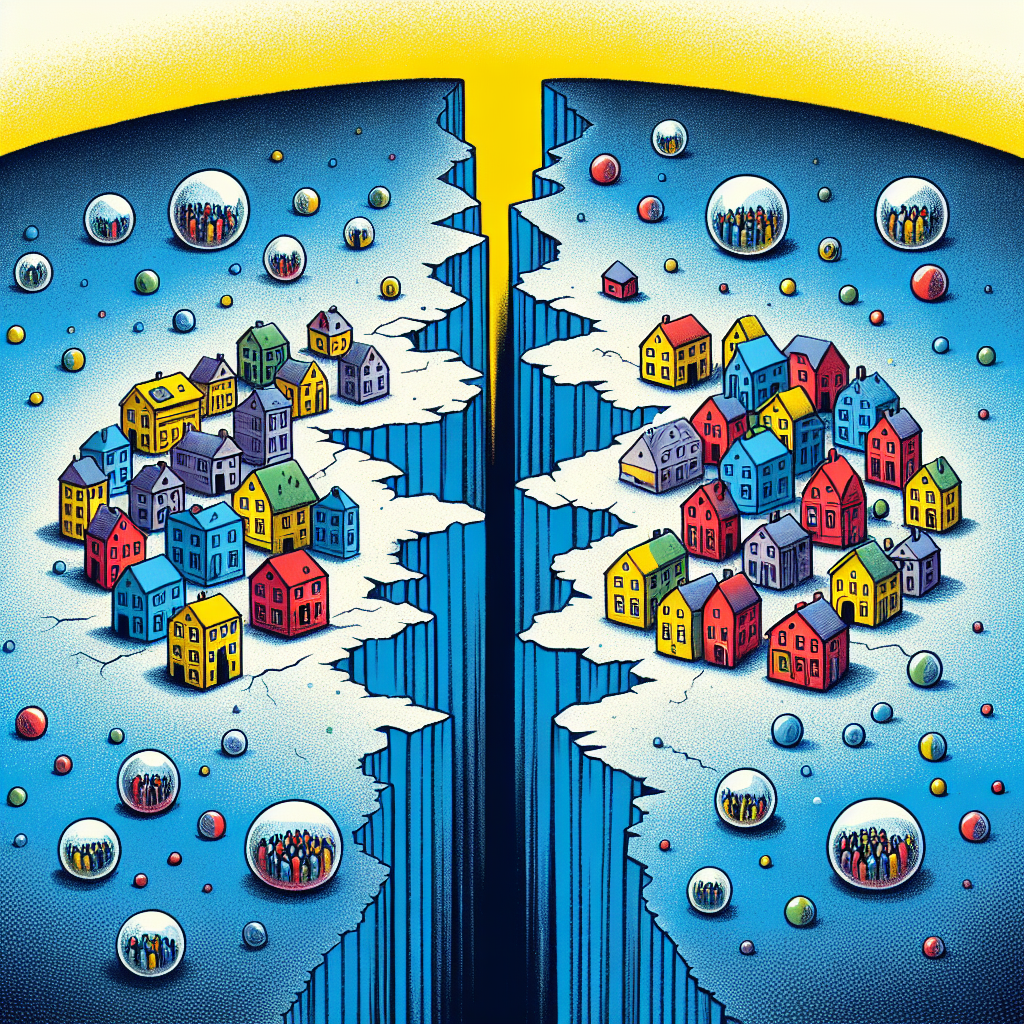The political landscape in the United States has become increasingly contentious, particularly evident during each presidential election cycle. As highlighted by Jeff Thomas, mudslinging and vitriol have characterized U.S. politics for centuries, exemplified in the heated election of 1800 between John Adams and Thomas Jefferson. This historical context underscores that while the tone and tactics of campaigns might evolve, the underlying issues—such as government overreach and economic policy—remain perennial challenges. Unlike today’s bitter rivalries, these early contests were marked by aggressive rhetoric and media involvement, suggesting that while the nature of politics may appear cyclical, it continues to change with societal expectations and norms.
Despite the turbulent conditions prevalent in U.S. elections, Thomas also emphasizes that America’s political climate is not unique. Around the globe, elections can range from chaotic to civil, highlighting varying degrees of polarization. For instance, in Uruguay, the 2009 presidential debates demonstrated relative civility, where candidates exhibited mutual respect despite their differences, unlike the partisan sniping common in the U.S. This raises important questions about the cultural expectations of political civility within different nations, shedding light on how politicians often mirror the sentiments of their constituents. In the U.S., rising dissatisfaction with government institutions has led to a more contentious political environment, shaping the behavior and rhetoric of its political figures.
The polarization between political factions, particularly between the Left and Right, has intensified within American society, often exacerbated by the media’s role in shaping narratives. Thomas suggests that the sheer size and diversity of the U.S. contribute to this divide while arguing that the media plays a crucial role in amplifying the discord during times of crisis. In more stable periods, there exists a tendency for political parties to seek cooperation; however, when faced with challenges, competition for electoral dominance surfaces. This environment discourages bipartisanship and fosters an increasingly adversarial political arena, a state that the media exploits, ensuring a persistently unstable political atmosphere.
In contrast, smaller countries experience a different dynamic. Localism can mitigate polarization to some extent, as closer community ties often hold politicians accountable. In countries with smaller populations, like the Cayman Islands, personal relationships between voters and candidates foster an environment where deception is more difficult. Thomas illustrates this point through his experiences in the Cayman Islands, where an efficient and friendly electoral process contrasts sharply with the contentious elections characteristic of the U.S. The rapid nature of local elections contributes to a sense of trust and acceptance among citizens, where the legitimacy of the electoral process generally remains intact even amid political changes.
The impact of media on elections varies significantly between the U.S. and smaller jurisdictions. In the Cayman Islands, media primarily serves as a reporting entity rather than a means of indoctrination, indicating a community less reliant on aggressive media tactics. This difference in media influence allows voters to focus on personal connections and the actual character of candidates rather than mere campaign rhetoric. Consequently, the local populace can better discern the genuine capabilities of their candidates, leading to governance that more closely aligns with the electorate’s needs and desires, sparking discussions about effective governance structures and political accountability.
The financial dynamics of elections also play a crucial role in shaping political landscapes. In the U.S., the high volume of influence exerted by big donors and special interest groups complicates the electoral process, leading to significant challenges in transparency and accountability in political decision-making. Conversely, smaller jurisdictions afford greater visibility regarding such contributions, making it difficult for donors to maintain covert influence. Thomas discusses the importance of public awareness in smaller communities, whereby constituents can maintain informed oversight of their elected officials, thus reinforcing a more direct form of democracy. The underlying principle suggests that when the electorate is empowered to scrutinize their representatives, the potential for a true democracy is augmented, allowing voters to reclaim control over their governance.
In summary, while American politics currently grapples with heightened polarization, it remains essential to recognize that political cultures differ across the globe, shaped by social expectations, media influence, and community ties. Both the contentious and cooperative behaviors of politicians reflect the prevailing moods of their respective nations, affecting how they interact with constituents and other political entities. Moreover, the balance of power between elected officials and the electorate underscores that localism and transparency can cultivate healthier political ecosystems, offering lessons for larger, more fragmented nations. Emphasizing the need for accountability and public engagement, these insights suggest pathways toward restoring trust in democratic processes, illustrating that even in tumultuous environments, hope for improvement remains viable.

